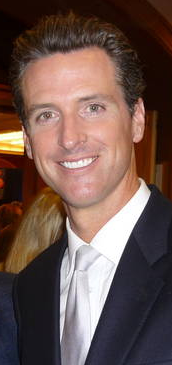 This guest post was written by San Francisco Mayor Gavin Newsom, who was elected to the position in 2003 and reelected in 2007. Newsom is also running for governor of California in the upcoming 2010 election. In this guest post, Mayor Newsom details the launch of DataSF.org, a new website that will offer convenient access to city data that is relevant to the community.
This guest post was written by San Francisco Mayor Gavin Newsom, who was elected to the position in 2003 and reelected in 2007. Newsom is also running for governor of California in the upcoming 2010 election. In this guest post, Mayor Newsom details the launch of DataSF.org, a new website that will offer convenient access to city data that is relevant to the community.
San Francisco has a long history of innovation. We are home to hundreds of technology companies that are changing the way the world operates from Twitter to WordPress to Kiva.
In an effort to engage our highly skilled workforce we are launching DataSF.org, an initiative designed to increase access to city data.
The new web site will provide a clearinghouse of structured, raw and machine-readable government data to the public in an easily downloadable format. For example, there will be updated crime incident data from the police department and restaurant inspection data from the Department of Public Health. The initial phase of the web site includes more than 100 datasets, from a range of city departments, including Police, Public Works, and the Municipal Transportation Agency.
We imagine creative developers taking apartment listings and city crime data and mashing it up to help renters find their next home or an iPhone application that shows restaurant ratings based on health code violations.
The idea behind the site is to open up San Francisco government and tap into the creative expertise of our greatest resource – our residents. We hope DataSF.org will create a torrent of innovation similar to when the developer community was given access to the platforms behind popular technologies and devices like Facebook and Apple’s iPhone.
Our effort to improve access to city data has already led to the creation of new services never imagined within the walls of government. Earlier this summer, our Department of Environment released recycling data that was used by a third party to develop EcoFinder, an iPhone application that helps residents recycle based on their location.
By bringing city data and communities together in one location, we hope to stimulate local industry, create jobs and highlight San Francisco’s creative culture and attractiveness as a place to live and work.
As we look to deepen and broaden citizen engagement we will face common challenges: resistance to change, political will, and sustaining data streams from government sources to name a few. Collaboration with citizens, non-profits, vendors, academia, and our peers in government will be critical to overcoming these barriers. It will also take leadership as we’ve seen from President Obama and his CIO, Vivek Kundra to establish our ideals and set forth a shared vision for a more transparent and open government.